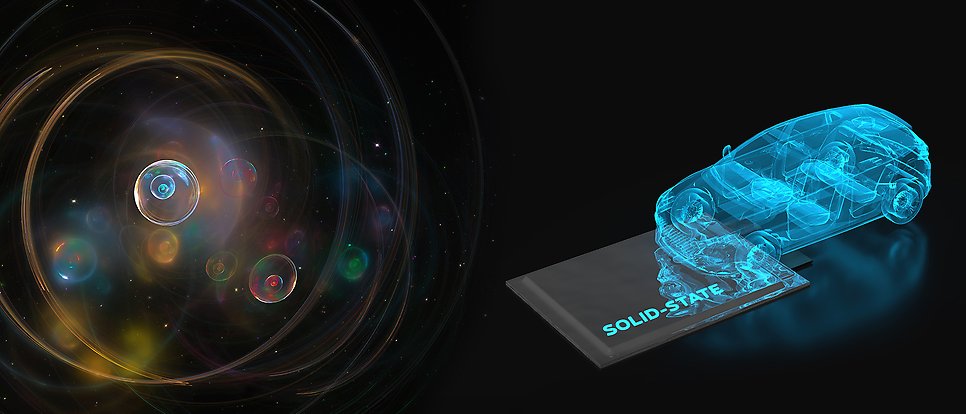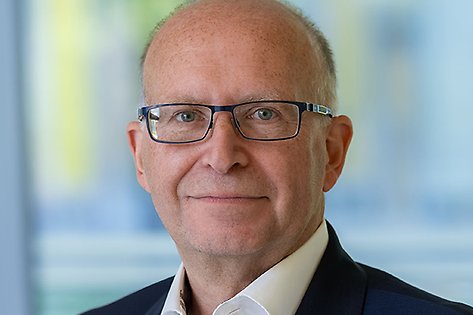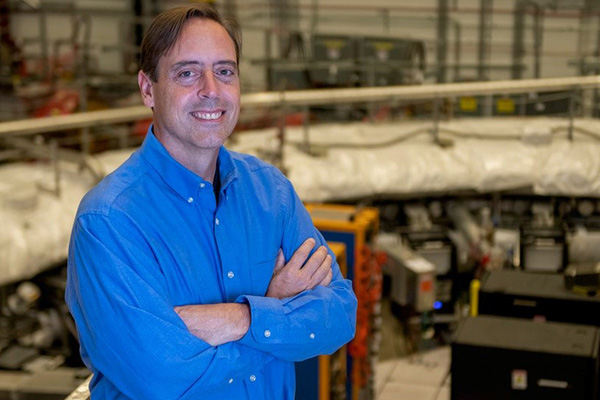Solid-state batteries and muons at this year’s Celsius-Linnaeus Lectures

At this year’s Celsius-Linnaeus Lectures on 15 February, current research on muons and solid-state batteries will be presented. Photo: Shutterstock
Will solid-state batteries be the next big battery breakthrough? Can muons provide answers about the universe beyond the Standard Model? At this year’s Celsius-Linnaeus Lectures on 15 February, chemist Jürgen Janek and physicist Chris Polly will present the latest findings in their research areas.

Professor Jürgen Janek. Photo: Private
Every year, Uppsala University’s Faculty of Science and Technology organises two lectures in memory of Anders Celsius and Carl Linnaeus. The selected lecturers are researchers whose world-leading and highly topical work has attracted attention in the research community and is of great public interest.
The 2024 Linnaeus Lecturer is Jürgen Janek, a professor at the Institute of Physical Chemistry at Justus Liebig University Giessen in Germany. He will address the issue of solid-state batteries and whether they can outperform the current lithium-ion technology based on liquid electrolytes. Since solid-state batteries are both safer and contain larger amounts of energy, they may prove crucial for the electrification of the transport sector and other technologies that will play a decisive role in the future of our society.
New characterisation methods
Jürgen Janek’s host is Daniel Brandell, Professor of Materials Chemistry at the Department of Chemistry-Ångström Laboratory.
“Janek’s major scientific achievement has been the development of new methods for studying and characterising solid-state ion transport. Thanks to him, the technology of solid-state electrolytes and solid-state batteries has taken giant leaps towards practical and functional types of applications. It’s a big step forward that’s of great importance for society.”
Batteries for the aircraft of the future?
Daniel Brandell is also looking forward to hearing Jürgen Janek’s views on various types of solid-state batteries, such as polymer-based batteries. They can also conduct ions, but the question is how these work in the interfaces of the batteries. Another question is when solid-state batteries might start being used in aircraft.
“Even if we’re talking about pretty small aircraft flying quite short distances and with relatively few passengers, it would still be interesting to hear Janek’s insights into that advance.”
Physics beyond the Standard Model
This year’s Celsius Lecturer is Professor Chris Polly from the Fermi National Accelerator Laboratory in Chicago, USA. He will lecture on how muons – the electron’s 200 times heavier sibling – are used in accelerator-based experiments to investigate the existence of hitherto unknown particles and laws of nature. These measurements can reveal differences that cannot be explained by the Standard Model, thus opening up new theories about the universe.

Professor Chris Polly, Fermi National Accelerator Laboratory, Chicago, USA. Photo: Private
Karin Schönning is Professor of Physics at the Department of Physics and Astronomy and specialises in experimental hadron physics. She is Chris Polly’s host at the lectures.
Seeking answers about magnetic torque
“Polly is leading an experiment whose results received a lot of attention in 2023. His team managed get a super-accurate measurement of the muon’s magnetic moment, which is sensitive to processes at the quantum level. What’s fascinating is that there’s a significant difference between the measurement they got and what different theoretical calculations had predicted.”
This could mean that there’s something beyond the so-called Standard Model in particle physics. To get answers, researchers have used a variety of methods that will also be presented at the subsequent symposium.
“What I find interesting about this year’s Celsius lecture is that it deals with a subject that brings together a lot of different areas: accelerator physics, quantum mechanics, particle physics, and nuclear physics. And you need all four areas to solve this riddle.”
Anneli Björkman
The 2024 Celsius-Linnaeus Lectures
Årets Celsius-Linné-föreläsningar äger rum den 15 februari kl.09.00—16.15 i Sonja Lyttkens-salen på Ångströmlaboratoriet, Uppsala universitet. Föreläsningarna är öppna för alla intresserade, ingen registrering krävs. Föreläsningarna kommer också att filmas. Efter Celsius- och Linné-föreläsningarna hålls ett symposium med forskarföreläsningar samt paneldiskussioner.
